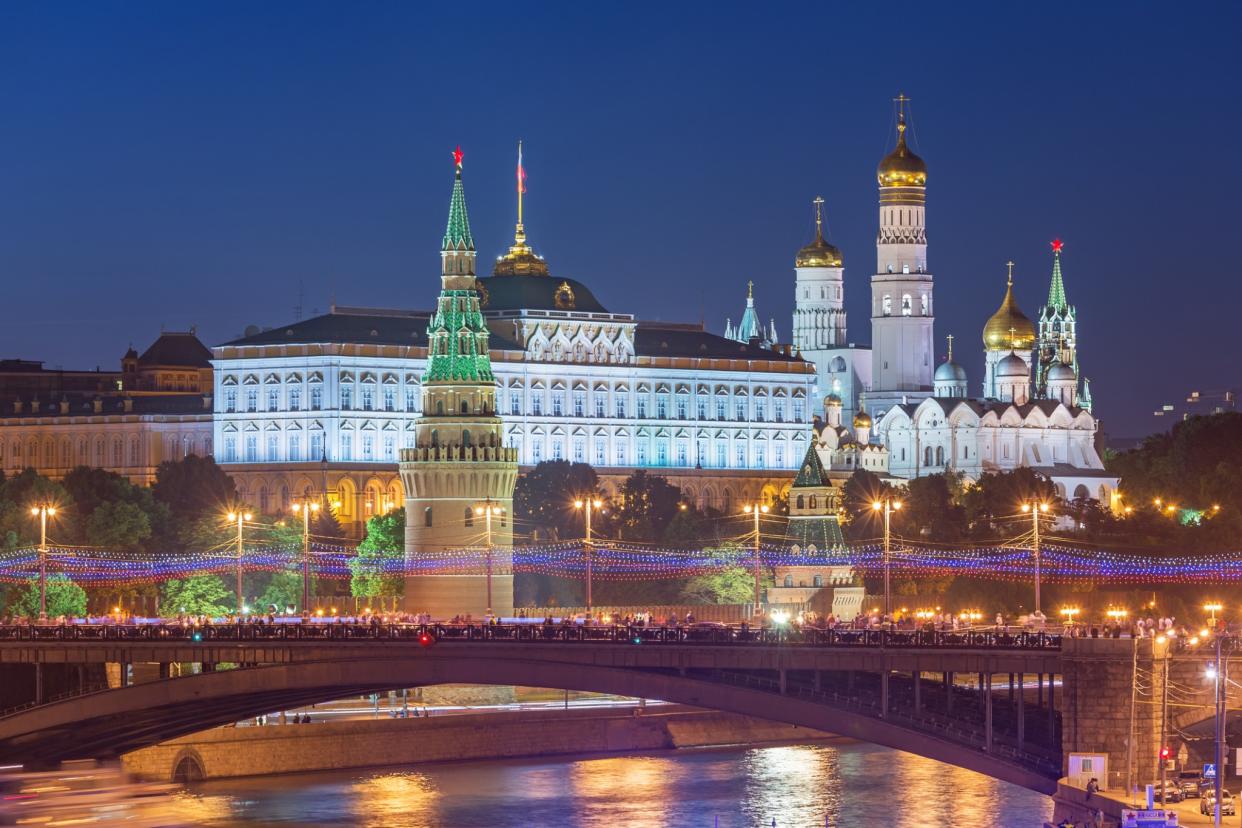16 places that shaped the 2016 election: Moscow, Russia

By Nov. 9, the votes will have been cast and counted, there will be a winner and a loser, and the country will begin a slow return to normal. Historians will have their say on the outcome, but all of us who have lived through this election will carry away indelible memories of a shocking year in American history: of a handful of ordinary people, swept up in the rush of history; of a series of moments on which the fate of the nation seemed, at least briefly, to turn; and of places on the map that became symbols of a divided nation. As we count down to Election Day, Yahoo News has identified 16 unforgettable people, moments and places.
Not since the darkest days of the Cold War has Moscow loomed so large in a U.S. election. In 2016, more than a quarter century after the collapse of the Soviet Union, Vladimir Putin’s Russia has improbably become a central issue. “I’ve stood up to Russia,” Hillary Clinton boasted during the Oct. 9 presidential debate. “I’ve taken on Putin and others. And I would do the same as president.” Trump, for his part, took a strikingly different tack, seeming to dismiss the Russian threat entirely. “I notice anytime anything wrong happens, they like to say, the Russians…”
How did this happen? Most certainly, Putin’s increasing aggressiveness — seeking to restore Russia to what he views as its rightful place as a global superpower — is a major factor. In 2014, he annexed Crimea. In 2015, he dispatched bombers and military advisers to Syria to bolster the faltering dictatorship of Bashir Assad. Just this month, the U.S. intelligence community publicly blamed Russia for cyberattacks on U.S. political figures and organizations that were “intended to interfere with the U.S. election”; a trove of intercepted emails then showed up on WikiLeaks and other websites. “Only Russia’s senior-most officials could have authorized these activities,” U.S. intelligence officials concluded.
What’s Putin up to? Winston Churchill famously said Russia “is a riddle wrapped in a mystery inside an enigma.” The riddle is just as baffling today. As Hillary Clinton would have it, Putin — who began his career as a Soviet KGB agent — wants to elect Trump as president. The claim has gotten credence due to multiple links between some of Trump’s top advisers and Moscow. But Heather Conley, a former State Department official now with the Center for Strategic and International Studies, says that Russia’s cyberattacks — and other “disinformation” efforts — are part of a broader Russian “information warfare” strategy aimed at weakening potential adversaries by “sowing doubt” about their political systems and “keeping everybody off balance.” There are some Western intelligence experts who now believe that, to the extent that Russian officials might have at one point wanted to help Trump, they are now experiencing buyer’s remorse. But if Putin’s real goal was simply to create confusion, he may have succeeded beyond his ambitions. — By Michael Isikoff
Suspected Russian hack of DNC widens — includes personal email of staffer researching Manafort
A July exclusive from Chief Investigative Correspondent Michael Isikoff about a Democratic National Committee consultant who got an alarming message when she logged into her personal Yahoo email account. >>>
Clinton says Putin wants a “puppet” like Trump
At the final presidential debate, Donald Trump and Hillary Clinton again sparred over the GOP nominee’s friendly posture toward Russia, with Trump accusing Clinton of being “outsmarted” by Russian President Vladimir Putin and Clinton accusing Trump of being a “puppet” for the Kremlin. >>>
New clues link election hacks in U.S. to Russian intelligence
A top cybersecurity firm said in September it has found “significant” links between the hacks of two U.S. state election databases this summer and suspected Russian state-sponsored attacks against the ruling political party in Turkey and members of the Ukrainian Parliament. >>>
We don't know why Trump and Putin praise each other so much and share many foreign policies.
We'll let you guess.https://t.co/N6ySNJ3zE5
— Hillary Clinton (@HillaryClinton) August 5, 2016
The new joke in town is that Russia leaked the disastrous DNC e-mails, which should never have been written (stupid), because Putin likes me
— Donald J. Trump (@realDonaldTrump) July 25, 2016
"I never made out with Putin." "Nobody ever said you did, Mr. Trump." "Because I didn't. And I don't even want to!"
— Seth Mnookin (@sethmnookin) October 20, 2016







